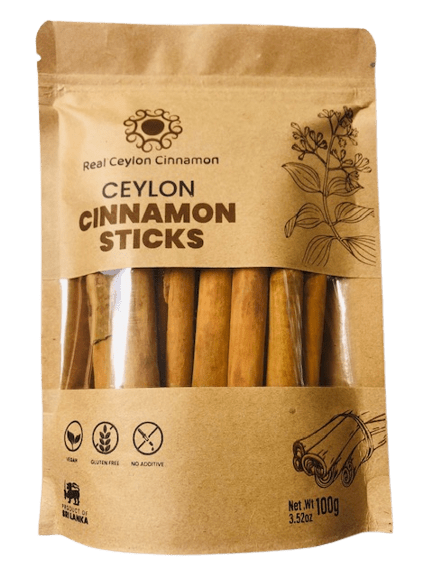The Role of Cinnamon in Reducing Muscle Soreness

As individuals strive to maintain an active lifestyle, the aftermath of intense physical activity often presents a challenge. The discomfort that accompanies muscle exertion can hinder one's ability to fully embrace their fitness journey. However, emerging research suggests that a humble spice, known for its aromatic qualities and culinary versatility, may hold the key to reducing these post-workout woes.
Exploring the potential benefits of this natural remedy has captivated the attention of health enthusiasts and scientists alike. With its distinct flavor profile and ancient medicinal roots, this spice has garnered interest as a potential solution for alleviating muscular soreness. By delving into the depths of scientific studies and anecdotal evidence, we aim to unravel the mysteries surrounding this unassuming yet promising ingredient.
In recent years, researchers have turned their focus towards understanding how this spice may contribute to easing muscular discomfort. By examining its chemical composition and physiological effects on the body, they aim to uncover whether it possesses properties that can aid in recovery post-exercise. This exploration seeks not only to provide relief for those who experience muscle soreness but also holds implications for athletes seeking ways to enhance their performance.
Scientific Name and Brief Description
Benefits of Cinnamon for Muscle Soreness
Cinnamon's anti-inflammatory prowess
One of the key benefits of cinnamon in alleviating muscle soreness lies in its remarkable anti-inflammatory properties. The active compounds found in cinnamon possess the ability to inhibit certain enzymes that trigger inflammation in the body. By reducing inflammation, cinnamon aids in minimizing swelling and pain associated with muscle soreness.
Improved https://www.cinnamon-benefits.com is known to promote better blood flow throughout the body, which can be particularly beneficial when it comes to reducing muscle soreness. Enhanced circulation helps deliver vital nutrients and oxygen to fatigued muscles, facilitating their recovery process and easing discomfort.
Natural pain relief
In addition to its anti-inflammatory effects, cinnamon also acts as a natural pain reliever. Certain compounds present in this spice have been shown to activate pathways that block pain signals from reaching the brain, providing a soothing effect on muscles affected by exercise-induced soreness.

Note: While cinnamon offers potential benefits for alleviating muscle soreness, it is important to consult with a healthcare professional before incorporating any new remedies into your routine.
Habitat and Distribution
In the vast expanse of nature, where plants flourish and ecosystems thrive, cinnamon finds its habitat. This aromatic spice, known for its distinct flavor and therapeutic properties, is found in regions that boast a warm climate and well-drained soil. Its distribution spans across different continents, with various countries cultivating this precious ingredient.
From the sun-kissed lands of Sri Lanka to the tropical forests of Indonesia, cinnamon trees grow abundantly. These trees prefer to call regions near the equator their home, where they can bask in ample sunlight and receive adequate rainfall. Other countries like India, Vietnam, and China also contribute to the global distribution of cinnamon.
The cultivation of cinnamon is not limited to a single region or nation; rather it extends its roots across borders. Farmers diligently nurture these trees in their plantations, ensuring their growth and sustainability. The careful cultivation practices employed by these farmers help maintain a steady supply of cinnamon for consumption worldwide.
- Sri Lanka: Known as the "Cinnamon Island," Sri Lanka boasts ideal conditions for growing this spice. Its lush landscapes provide an enchanting backdrop for cinnamon plantations.
- Indonesia: With its vast archipelago encompassing thousands of islands, Indonesia serves as one of the leading producers of cinnamon globally.
- India: Cinnamon thrives in certain regions within India's diverse landscape. The country's rich cultural heritage also incorporates this spice into various culinary traditions.
- Vietnam: Nestled in Southeast Asia, Vietnam contributes significantly to the cultivation and exportation of high-quality cinnamon.
- China: Known for its ancient history and diverse flora, China plays a role in supplying cinnamon to both domestic markets and international trade networks.
As cinnamon continues to captivate taste buds and offer potential health benefits, its habitat and distribution remain crucial factors in ensuring a steady supply of this beloved spice. The efforts of farmers and the unique geographical conditions in which cinnamon thrives contribute to its availability for both culinary and medicinal purposes.
Cinnamon's Effect on Muscle Recovery
Enhancing the body's ability to recuperate after intense physical activity is a subject of great interest among athletes and fitness enthusiasts. While many focus on traditional methods such as rest, hydration, and proper nutrition, recent studies have shed light on the potential benefits of cinnamon in aiding muscle recovery.
Cinnamon, a spice known for its distinctive aroma and flavor, has long been used in culinary creations. However, its potential impact on muscle recovery has only recently come to the forefront. Researchers have discovered that cinnamon contains compounds with anti-inflammatory properties that may help reduce post-exercise muscle soreness and promote faster healing.
- Supporting Muscle Repair: Cinnamon's active compounds have been found to stimulate cellular repair processes within muscles. By promoting the production of growth factors and enhancing blood circulation to damaged tissues, cinnamon may accelerate the healing process following strenuous exercise.
- Reducing Inflammation: Intense physical activity can lead to inflammation in muscles, causing discomfort and hindering recovery. Cinnamon's anti-inflammatory properties may help alleviate this inflammation by inhibiting certain enzymes responsible for triggering inflammatory responses.
- Promoting Blood Flow: Proper blood circulation is crucial for delivering oxygen and nutrients to muscles during exercise and facilitating their recovery afterwards. Cinnamon has been shown to improve blood flow by dilating blood vessels, potentially aiding in the removal of metabolic waste products from fatigued muscles.
While further research is needed to fully understand cinnamon's role in muscle recovery, initial findings suggest promising potential. Incorporating cinnamon into post-workout meals or consuming it as a supplement could be a simple yet effective way to support the body's natural healing processes and enhance overall athletic performance.
